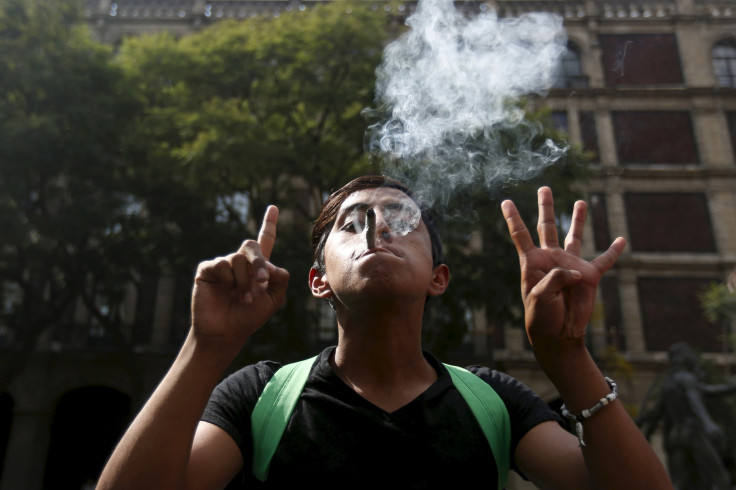Will Mexico Legalize Marijuana? New Court Ruling Could Spark Reform

Mexico’s Supreme Court made significant strides toward legalizing marijuana Wednesday when it ruled that individuals should have the right to grow and distribute marijuana for their personal use, the New York Times reported. The ruling does not strike down the country’s current drug laws, however, and applies only to a single cannabis club that brought the suit.
The court’s decision could be Mexico’s first step in reforming the country's strict drugs laws, which are considered the most conservative in Latin America. Despite the American-backed war on drugs in Mexico, the flow of drugs to the U.S. has continued and the country has been submerged in violence for decades. Wednesday’s ruling could provide a legal path for people who oppose marijuana to continue challenging the restrictive laws in the future.
"This vote by Mexico’s Supreme Court is extraordinary for two reasons: It is being argued on human rights grounds and it is taking place in one of the countries that has suffered the most from the war on drugs," Hannah Hetzer, senior policy manager of the Americas at the Drug Policy Alliance, said in a statement, the Huffington Post reported. "Now with this landmark decision out of Mexico, it is clear that the Americas are leading the world in marijuana reform."

A growing number of people have begun to question whether there should be a shift in strategy, and some Latin American leaders have called for change from the war on drugs, including President Juan Manuel Santos of Colombia. Santos acknowledged that while poor farmers are penalized for cultivating marijuana, some states in the U.S. have either legalized the drug or have taken strides toward legalizing it.
“We are killing ourselves to stop the production of something that is heading to the U.S., where it’s legal,” said Armando Santacruz, another plaintiff in the case, the New York Times reported.
The ruling Wednesday, though, cited that Mexico recognizes an individual’s freedom to participate in activities that do not harm others, and did not refer much to the bloody background of the drug cartels that run rampant in the country. In order for marijuana to be legalized in Mexico, the justices in the court’s criminal chamber would either have to rule the same way five times or eight of the 11 members of the full court would have to vote in favor. However, the majority of Mexicans reportedly oppose the legalization of marijuana, including the Mexican government, legislators, security and health officials and the Roman Catholic Church.
Uruguay started the slowly sweeping movement to legalize marijuana when it made cannabis legal in 2013. Colombia has ceased aerial fumigation of its illegal coca field and Brazil has recently undertaken decriminalization debates. Colorado and Washington became the first states in the U.S. to legalize the drug, in 2012.
© Copyright IBTimes 2024. All rights reserved.












